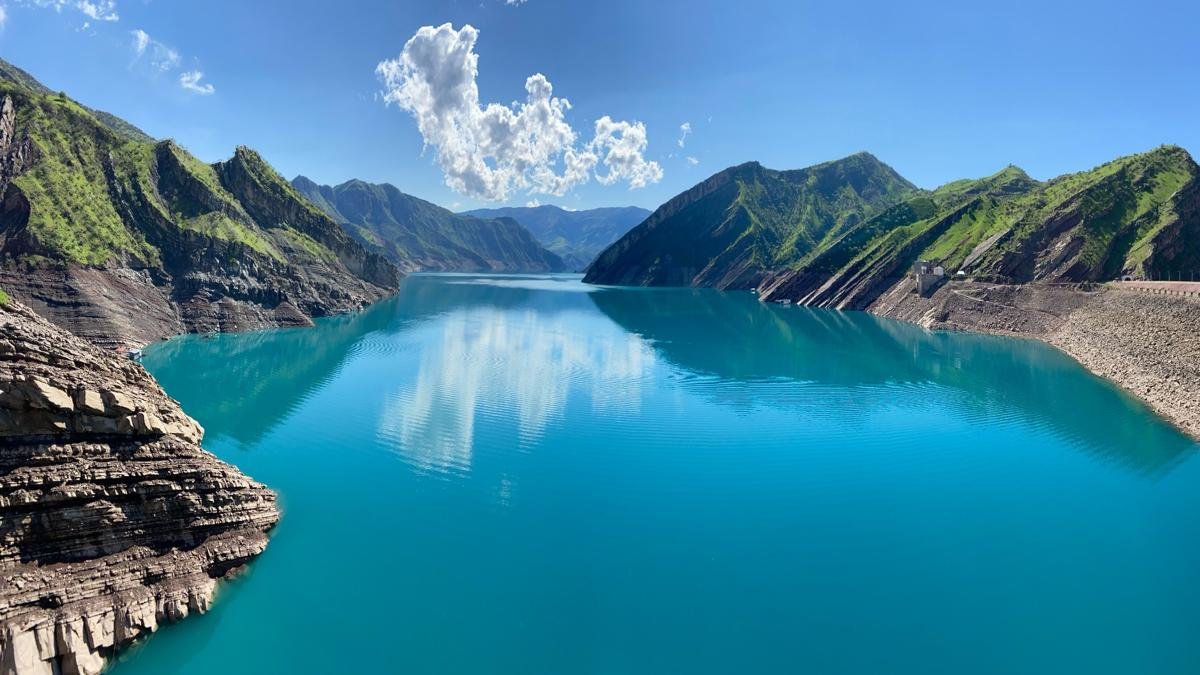The Dangers Lurking in Our Power and Water Infrastructure: Why Asbestos Management is Critical for HPP Rehabilitation
The global push for renewable energy sources has put a spotlight on hydropower, particularly the rehabilitation of aging Hydroelectric Power Plants (HPPs). Notably, approximately 40% of all hydropower plants worldwide were commissioned over 40 years ago. The International Energy Agency (IEA) predicts that by 2030, over 20% of the global hydropower fleet's generating units will exceed 55 years of age, at which point major electromechanical equipment typically requires replacement. This aging infrastructure necessitates substantial rehabilitation efforts to maintain efficiency and safety standards. While this presents a significant opportunity for modernization and increased efficiency, it also unveils a hidden danger and a significant HPP refurbishment hazard: Asbestos.
Asbestos in Hydropower Plants (HPPs)
Many HPPs, especially those built before the 2000s, utilized Asbestos extensively due to its heat resistance and insulating properties. Commonly found in insulation for generators, turbines, piping, and even in fire-retardant coatings, Asbestos poses a serious health risk to workers involved in rehabilitation projects. Other common locations include pipe and cable penetration insulation, gaskets, boards, and cement materials within electrical cabinets, as well as Asbestos cement used for various purposes, such as roofing sheets, shading, arc shields, and housing around critical electrical equipment like bus bars.
When Asbestos-Containing Materials (ACMs) are disturbed during renovation or demolition, microscopic fibers become airborne. Inhaling these fibers can lead to severe health issues, including lung cancer, asbestosis, and mesothelioma.
The Cost of Neglecting Asbestos
Failing to address Asbestos in HPP rehabilitation projects can result in:
Significant health risks to workers: Leading to long-term health complications and potential legal liabilities.
Project delays and cost overruns: Asbestos abatement requires specialized procedures and disposal, adding unforeseen expenses and time to the project.
Reputational damage: Neglecting Asbestos can negatively impact a company's image and stakeholder relationships.
Mitigating Risks with Expert Asbestos Consultancy
Engaging a specialized Asbestos consultancy company is crucial for mitigating these risks. These companies provide comprehensive services, including:
Thorough Asbestos surveys: Identifying and assessing the presence and condition of ACMs within the HPP.
Risk assessments: Evaluating the potential for Asbestos exposure during different phases of the rehabilitation project.
Asbestos management plans: Developing and implementing safe and compliant Asbestos management strategies.
Air monitoring: Ensuring that Asbestos fiber levels remain within permissible limits during and after abatement activities.
Asbestos Abatement oversight: Supervising the safe removal and disposal of ACMs by licensed contractors.
The Role of International Funding
International financial institutions, such as the World Bank, European Bank for Reconstruction and Development (EBRD), International Bank for Reconstruction and Development (IBRD), Asian Development Bank (ADB), and Asian Infrastructure Investment Bank (AIIB), often play a crucial role in funding HPP rehabilitation projects. These institutions have stringent environmental and social safeguards, including requirements for Asbestos management.
By partnering with an experienced Asbestos consultancy company, contractors can ensure compliance with these requirements and secure funding for their projects.
Regulations
When undertaking hydropower plant (HPP) rehabilitation projects, it is critical to adhere to global and local regulations that govern the management of Asbestos. Compliance not only ensures the safety of workers and surrounding communities but also protects contractors from legal liabilities and project delays. Below are some key regulatory frameworks and guidelines relevant to Asbestos management:
World Bank Environmental and Social Framework (ESF)
International Finance Corporation (IFC) Performance Standards
UK Health and Safety Executive (HSE) Guidelines
Other Regional Standards: Such as the European Union’s (EU) Directive 2009/148/EC on asbestos exposure, and the United States EPA’s Asbestos National Emission Standards for Hazardous Air Pollutants (NESHAP)
A Looming Challenge: Asbestos Risks in Aging CIS Hydropower Plants
Rehabilitation and Asbestos removal are critical aspects of modernizing hydropower plants, especially in regions with a history of extensive Asbestos use like the Commonwealth of Independent States (CIS). Proximity to major Asbestos producers like Russia and Kazakhstan, coupled with less stringent historical safety regulations, led to widespread use of this inexpensive mineral in construction.
Several CIS countries have undertaken major HPP rehabilitation projects, with notable examples in Tajikistan (Nurek HPP) and Kyrgyzstan (Uch-Kurgan and Toktogul HPPs). Completed projects include those in Armenia (Shamb, Tatev, and Spandaryan HPPs), Azerbaijan (Mingechevir HPP), and Russia (Bratsk HPP).
However, numerous power stations built before the 2000s are nearing the point of needing major rehabilitation, presenting potential Asbestos concerns for contractors. These include the Bukhtarma and Kapchagay HPPs (Kazakhstan), Kürpsay HPP Dubăsari HPP (Moldova), Baipaza HPP (Tajikistan), Andijan HPP (Uzbekistan), and many others across Armenia, Azerbaijan, Belarus, Estonia, Georgia, Kyrgyzstan, Latvia, Lithuania, Russia, Tajikistan, Ukraine, and Uzbekistan. Addressing potential Asbestos risks is crucial to ensure worker safety and avoid costly project delays.
Conclusion
Asbestos in aging HPPs presents a significant challenge, but with proactive planning and expert guidance, it can be managed effectively. By prioritizing Asbestos consultancy services, hydropower companies can protect their workers, ensure project success, and contribute to a safer and more sustainable energy future.
If you have any Asbestos related concerns, contact us to see how Anthesis Consulting Middle East can help you:
Charles Faulkner (Head of Environment, Health and Safety, and Asbestos Team Leader)
Phone: +971 (0) 50 5541 320
Email: asbestos@anthesisgroup.com

